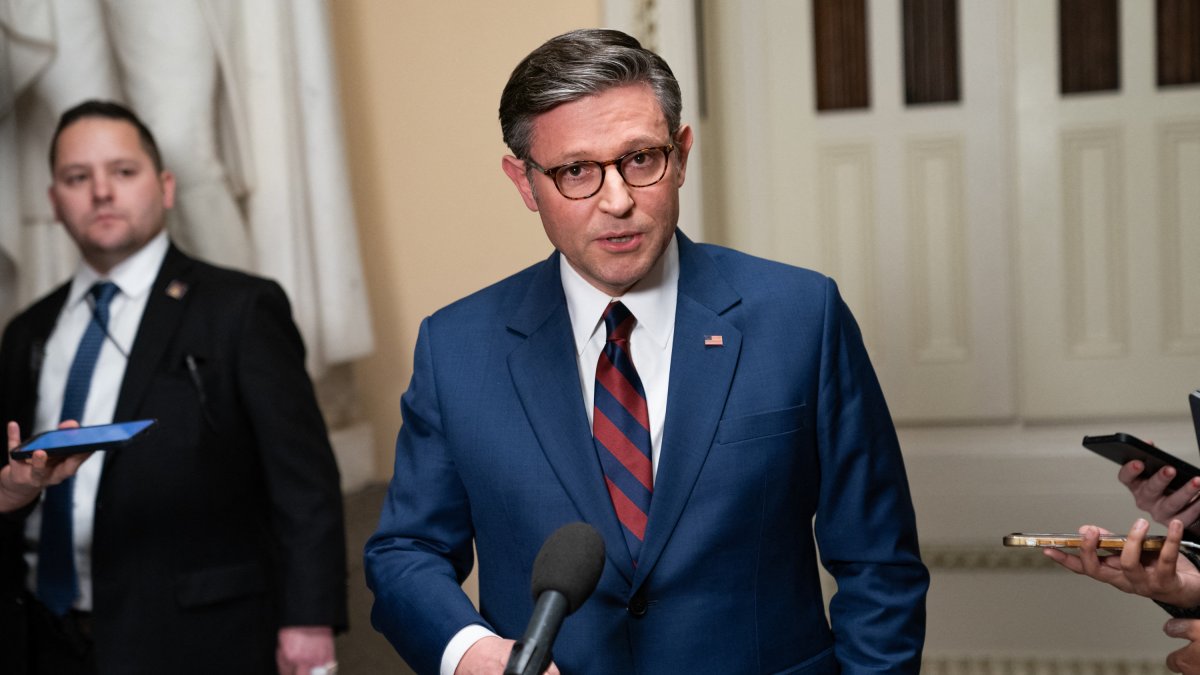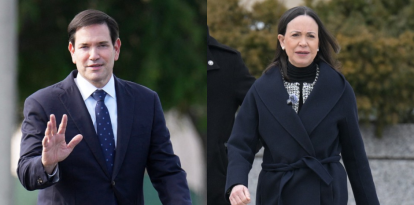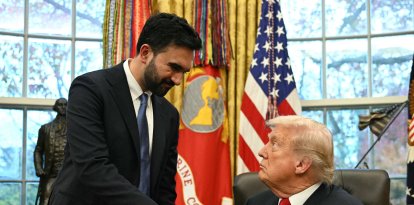Trump-backed Johnson proposal to keep government open fails
The bill's crumbling comes as a deadline approaches to avoid a partial government shutdown.

President Mike Johnson suffered a tough legislative defeat
The bill backed by President-elect Donald Trump to avert a partial government shutdown was rejected by the House of Representatives Thursday night, with more than thirty Republicans joining Democrats.
The rejection comes at a delicate time, with Congress edging ever closer to the possibility of a partial shutdown.
The deadline to pass a continuing resolution is the end of Friday.
The vote came after legislation was quickly and suddenly negotiated Thursday after hard-line GOP lawmakers rebelled against an initial bipartisan deal along with Elon Musk and Vivek Ramaswamy.
The first deal, rejected Wednesday, would have extended the government funding deadline to March 14 and included a number of policy provisions unrelated to funding.
The new deal, which was endorsed by Musk, included several key policies unrelated to maintaining the government, but was substantially less than the first proposal. In fact, the bill rejected Thursday was 116 pages long, far more concise than its 1,547-page predecessor.
The problem is that the overspending was kept intact, which did not convince hard-line Republicans.
While the new proposal was pared down to only about 116 pages, it retained several essential spending targets raised by a large number of lawmakers, including a stopgap measure that funds the government through mid-March, an extension of the clean farm bill, the $110 billion disaster aid package, extensions of clean health provisions and a two-year suspension of the debt limit, sending the new deadline to January 2027, which was an express request from President Trump.
"This is Washington. This is how lawmaking is done...The only change in this legislation is that we are going to push the debt limit to January 30, 2027," Johnson said of the proposal.
"Even though this vote would push the debt limit to 2027, it in no way reflects any lack of enthusiasm on our part to get about those serious cuts for the American people. We have to have fiscal responsibility as a core principle of our party," Johnson insisted.
This a political defeat for both the House GOP leader and President Trump himself after several positive weeks following the election.
Democratic and conservative backlash
The rejection came after Democrats were up in arms after the Continuing Resolution proposal by speaker Johnson, President Trump and several moderate Republicans was unveiled.
The first to come out and defend the proposal, which took Democratic lawmakers by surprise, was Minority Leader Hakeem Jeffries, who said the measure was not serious and blamed it on tycoon Elon Musk.
"The Musk-Johnson proposal is not serious, it's laughable. Extreme MAGA Republicans are driving us to a government shutdown," Jeffries said indignantly.
Later, Rep. Jamie Raskin (D-MD) also blasted the owner of Tesla, 'X' and other companies for opposing Wednesday's latest deal that was rejected by conservative Republicans.
"Everybody agreed," Raskin said, "and then it was blown up by Elon Musk, who apparently has become the fourth branch of government. And that's just an intolerable way of proceeding."
"Democrats are going to try to figure out how we can salvage the public good as the wreckage that's just been pushed," he added.
WATCH | Congressman Jamie Raskin reacts to the DOGE-promulgated reduction of the spending bill from 1,500 pages to 116:
— VOZ (@Voz_US) December 19, 2024
🗣️ "And then, it was blown up by Elon Musk, who apparently, has become the 4th branch of government. That is intolerable" pic.twitter.com/pUtonPPTB2

Politics
Republicans strike new spending deal that has Trump's backing and takes Democrats by surprise
Emmanuel Alejandro Rondón
According to Fox News Digital, the Democratic rejection of this afternoon's proposal appears to be markedly negative. According to one report, chants of "hell no" could even be heard inside the room where Democrats gathered after the text of the Trump-backed bill was released.
The problem for Johnson and Republicans supporting the measure is that some conservative colleagues, such as Chip Roy (R-TX), directly opposed against the latest Continuing Resolution proposal.
"More debt. More government. Increasing the Credit Card $4 trillion with ZERO spending restraint and cuts. HARD NO," Roy wrote on X.
Without unanimous Republican backing, Johnson needed the votes of Democrats, who have lately voted as a bloc in the lower House.
The curious thing about the new proposal is that it failed to satisfy either Democrats who want a bill that would fund the government broadly or Republicans who are concerned about debt and excessive spending.

























